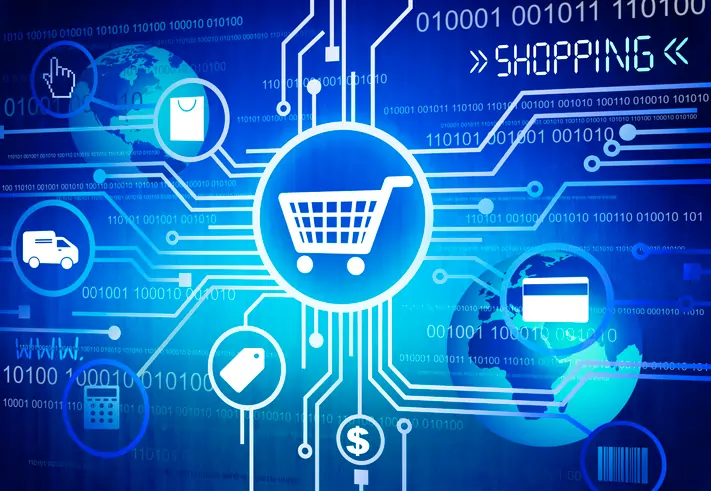

Tobias Waldhecker is an industrial engineer and expert in commercialization strategy contributing to transforming retail logistics through Artificial Intelligence (AI)-driven strategies. He works to identify markets and product initiatives as efficiently and impactfully as possible while enhancing the usefulness and sustainability of Last-Mile Delivery (LMD) for retailers and consumers.
Waldhecker is driving the future of e-commerce growth and retail logistics by leveraging technology and strategy.
A Varied and Growing Career
Before working as a strategy consultant for Deloitte, Tobias began his career as an industrial engineer with a high-tech industrial manufacturing company in Germany. He then decided to move to Boston and pursue a master’s degree in general finance. He put his degree to use to start a business, Fuel Nutrition, which was accepted into a Google-led accelerator program and found success before the COVID-19 pandemic led to it shutting down.
Following this entrepreneurial venture, Tobias joined the gaming company Devsisters as the head of business development and partnerships. He negotiated film and TV rights with Disney and Netflix while working on storylines, scripts, and characters before transitioning to Facebook to work on creator tools, the monetization flywheel, and product strategy.
Tobias currently works as the senior strategy manager at Walmart, where he has built a tool to segment and forecast markets based on supply chain tools to help management make investment decisions.
“I find it fascinating to use data to read and predict markets and then develop methods and plans to exploit opportunities,” Tobias explains. “Since my days in consulting, I have been able to break down problems into their core elements and solve them structurally, which helped me use my strategy mindset in various different industries.”
How AI Is Impacting the LMD Process
In his present role, Tobias is in charge of developing a transformative LMD system using AI technology. He recognized the importance of tailoring the last leg of an item’s journey to the individual business rather than applying a one-size-fits-all solution.
Customers expect retailers to minimize delivery fees while providing speedy delivery times and are becoming more likely to “abandon their shopping carts” in cases where last-mile delivery is not an option, which is a big challenge for the industry.
Predicting Demand
Tobias effectively predicts customer demand by analyzing years of historical data using AI. This method identifies how much of a product customers need and the likelihood of utilizing last-mile delivery services to bring it to their door. AI can map existing supply chains and join previously independent parts of a business, increasing real-time efficiency and clarity for management.
The Vision for a Centralized AI System
Tobias recognizes that the future of AI-driven delivery logistics lies in developing centralized AI systems that connect retail demand forecasting (what people want and when), warehouse planning (what is where), and route planning (what needs to go where) with real-time data analysis. When such a system falls into place, a company will have access to 100% efficient logistics and the ability to choose the best transportation method, the shortest route, ideal batching, and the most efficient chaining for the job.
“Through Walmart GoLocal and with our product teams, I help prioritize markets and initiatives to be as efficient and impactful as possible,” elaborates Tobias. “Delivery is a growing trend, but it has to be done correctly to be a useful and sustainable tool for both retailers and customers alike.”
AI in Supply Chain Management
AI is significantly impacting retail markets and the supply chain across the world. Over 40% of supply chain organizations are investing in AI technology, with business executives anticipating cost savings of more than 20%. Despite this investment and anticipation, very few are applying AI technology to its full potential of forecasting demand, improving operational efficiency, and reducing costs, with actual use cases lagging behind.
Tobias has already used AI to impact Walmart’s decision-making processes, which can potentially influence the rest of the supply chain industry. Walmart GoLocal’s system enables retailers in less dense metropolitan areas to offer last-mile and same-day delivery, whereas services like Uber and Doordash focus on downtown areas. Now, Walmart extends beyond just food to provide merchandise and other goods.
Tobias emphasizes customizing same-day and last-mile offerings to meet retailers’ needs, resulting in longer or shorter Service-Level Agreements (SLAs), custom Stock-Keeping Units (SKUs), and more. Most importantly, AI enables dynamic last-mile rollout for enhanced efficiency and the ability to meet consumers’ current demands, resulting in competitive and cost-efficient retail strategies.
The Future of Retail and E-Commerce
Even now, Tobias is looking to the future avenues that will be opened up by technological advancements. There is AI technology, of course, but also the emerging trends of dark stores, drones, self-driving vehicles, EVs, and more, which will find their niches in the supply chain.
Each of these has the potential to help solve many of the challenges faced by an industry that is growing faster than ever. Supply chains, transportation, and delivery can always be more efficient, whether through sustainability, innovation, or enhanced logistics, and Tobias will be there to seize the opportunity.


